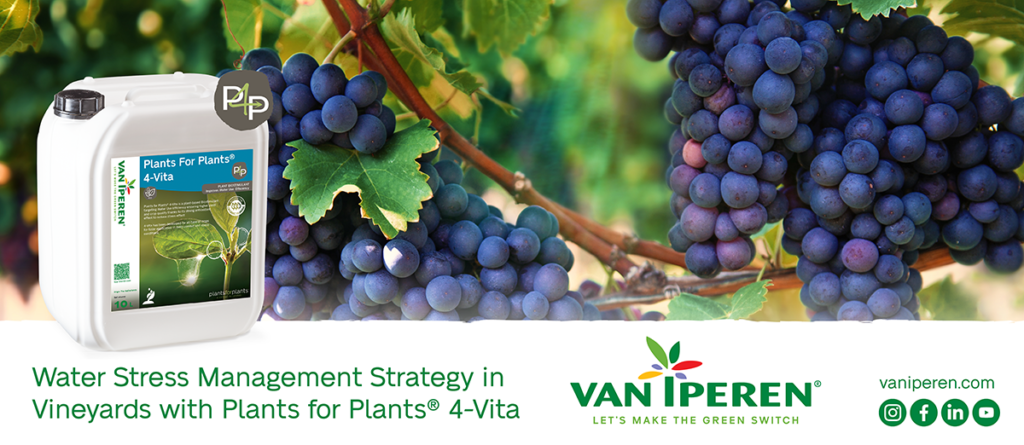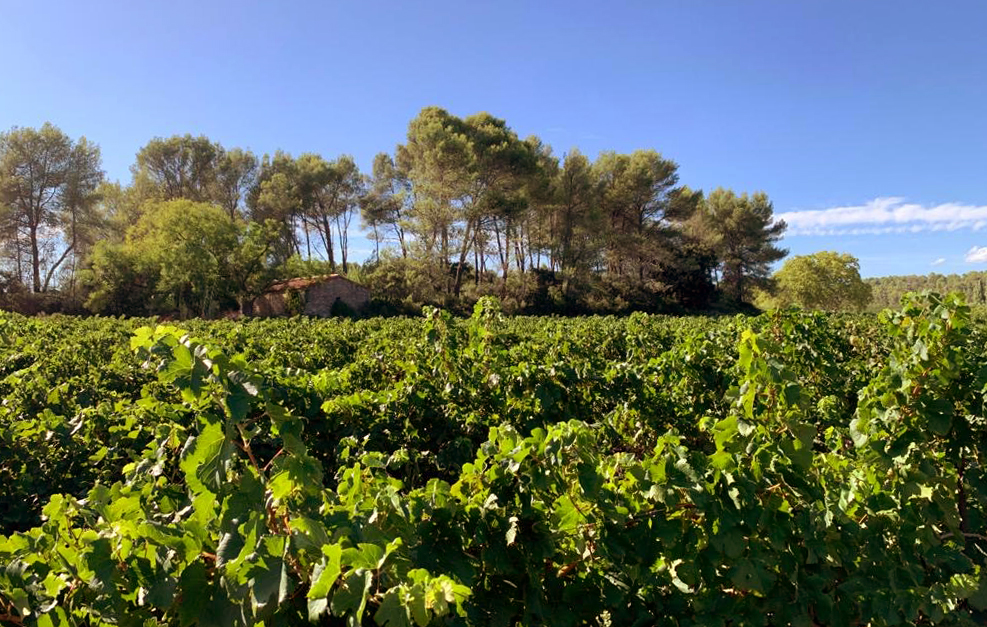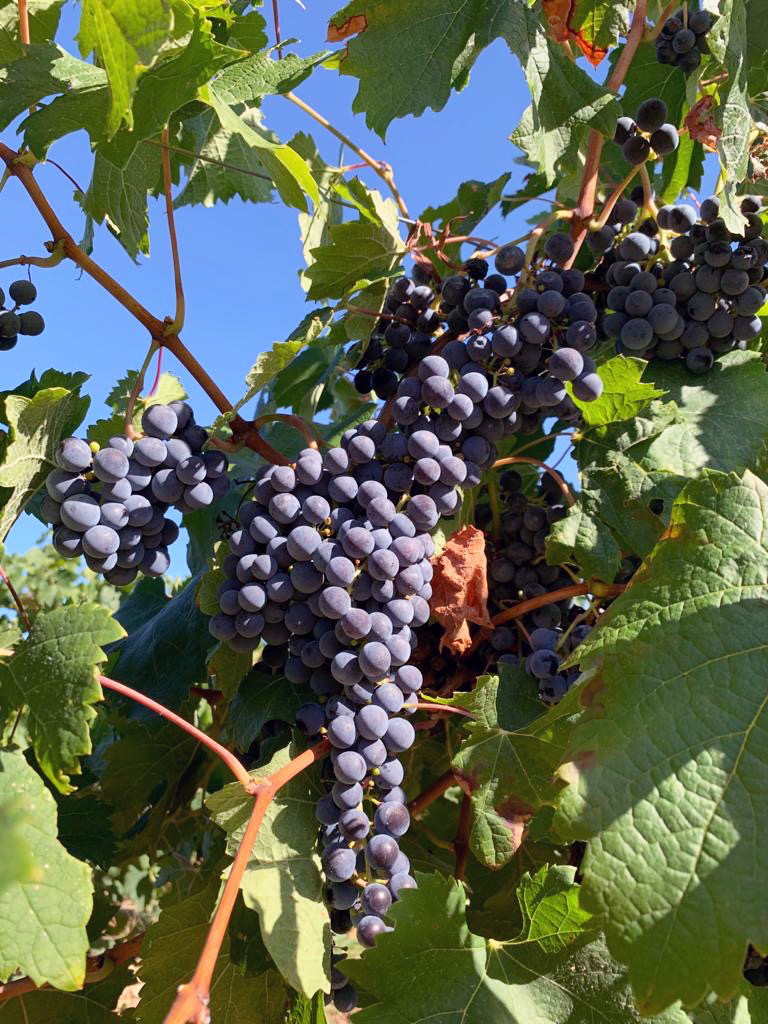More and more, water management is becoming a crucial topic in agriculture, especially for crops such as vineyards in areas where they were considered one of the few alternative crops able to cope with drought. At Van Iperen, we believe in an integrated approach to managing drought, where Plants for Plants® 4-Vita plays an important role in better managing water stress in vineyards.

The growing season in many wine-producing regions in the Northern Hemisphere is starting. However, many regions worldwide suffer the impact of severe episodes of drought. From California to China through France, Spain, and Greece, these extreme climate conditions jeopardize vineyards’ grape production and quality.
At Van Iperen International, we actively look for solutions to support grape growers in their daily practices. For effective management of water stress in drought, we propose Plants for Plants® 4-Vita, our plant-based biostimulant as part of a holistic strategy.
A holistic approach to crop water stress management
Our integrated approach to better manage water stress in vineyards consists of:
- Plants for Plants® 4-Vita: Our plant-based biostimulant targeting Water Use Efficiency (WUE) recovers the yield potential under stress conditions. How? P4P® 4-Vita strongly reduces natural oxidative damage to cells, thereby preserving yield potential regardless of growing conditions through increased protection of the photosynthetic system. Developed to be effective by foliar application in times of stress but also supposed “comfort” situations, Plants for Plants® 4-Vita improves the stability of the photosystem, and thus crop performance throughout the season leading to better yields.
- Irrigation Management: Proper irrigation management is crucial for mitigating water stress in vineyards. Irrigation systems should be designed and maintained to deliver water efficiently and effectively to the vines. Soil moisture sensors can be used to monitor soil moisture levels and inform irrigation scheduling. The timing and amount of water applied should be adjusted based on weather conditions, vine growth stage, and other factors that affect water demand.
- Soil Cover: Maintaining soil cover, such as through the use of cover crops, can help reduce soil water loss due to evaporation and improve soil water retention. Cover crops can also improve soil health and nutrient availability for the vines.
- Selection of Grape Varieties and Rootstocks: Choosing grape varieties and rootstocks that are well adapted to the local climate and soil conditions can help reduce water stress in vineyards. Drought-tolerant grape varieties and rootstocks are available and can be a good choice for vineyards in arid regions.
- Soil Analysis and Management: Soil analysis can provide valuable information about soil characteristics, such as texture, structure, and nutrient availability. This information can be used to develop soil management strategies that can help reduce water stress in the vines. For example, adding organic matter to the soil can improve soil water retention and nutrient availability.
- Analysis of Leaves and Twigs: Analyzing the leaves and twigs of grapevines can provide information about their nutrient status and water stress levels. This information can be used to adjust fertilizer applications and irrigation scheduling to better meet the needs of the vines.
Dosing recommendation | Plants for Plants® 4-Vita

3 applications of 2L/Ha during the usual treatment periods from the BBCH65 stage, up to the BBCH 75 stage. Maximum spray concentration: 2% w/v (concrete example in the Eastern Pyrenees: 2L in 120 L of spray mixture). *In situations of early stress it is relevant to start applications earlier, especially at the BBCH57 stage, and always finish at the BBCH75 stage. The doses indicated and the application steps are given as an indication. Exact doses, concentration, and application steps are subject to local conditions and practices and should be given after an objective diagnosis.

Overall, these strategies can support viticulturists in better managing water stress in their vineyards, which can lead to improved grape quality and yield, as well as increased vineyard sustainability.
Do you want to know more about Plants for Plants® 4-Vita? This plant-based biostimulant is part of the Plants for Plants® product range. You can find more information about the different trials tested over the years in wide different crop varieties and local conditions.
As a finalist for the prestigious LIFE Awards 2023 in the category of Environment, Plants for Plants® is one of our latest innovations to make conventional agriculture more sustainable. Discover more about the nomination here.